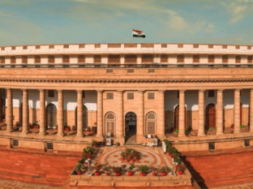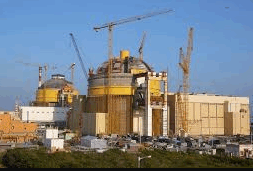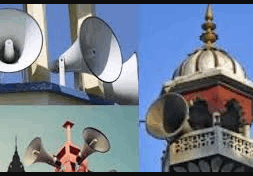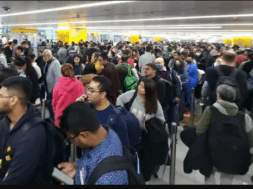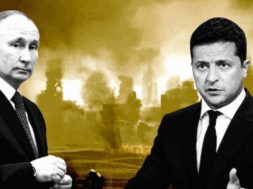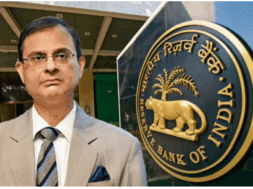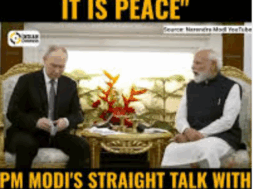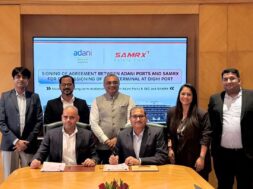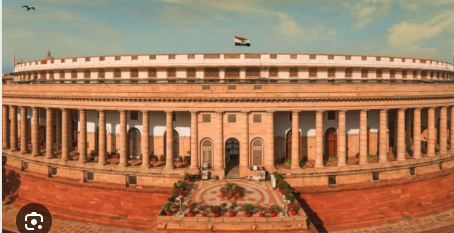
Modi Bids Farewell to Old Parliament, Tribute to All Participants in the Historic Building
Manas Dasgupta
NEW DELH, Sept 18: With the sitting of Parliament set to shift to the new building on the auspicious Ganesh Chaturthi day on Tuesday, the Prime Minister Narendra Modi led the Lok Sabha to bid farewell to the present historic round-shaped building where the members met one last time on Monday.
Terming bidding farewell to the old parliament building an emotional moment for him, with a mind filled with memories, Mr Modi said the biggest achievement of the Indian Parliament had been the ever growing trust of the people of India in that institution.
The Special Session of Parliament called by the government this week, will see the functioning of both Houses – Lok Sabha and Rajya Sabha – shift to the new parliament building that had been inaugurated in late May. Much has been speculated about the “real agenda” for calling the five day session, with the opposition apprehending that the government would be springing a legislative surprise on the House soon, with the thinking man’s bet being that this could be the Women’s Reservation Bill. The Bill as passed by the Rajya Sabha in 2010 is still alive but a new Bill, introduced by the Modi government will need to go through both Houses of Parliament.
Initiating the discussion in the Lok Sabha on “Parliamentary Journey of 75 years starting from Samvidhan Sabha — Achievements, Experiences, Memories and Learnings”, spoke on the breadth of history the building had been witness to, recalling works of his predecessors, some with praise, including former prime minister Jawaharlal Nehru, but also recalling the”cash-for-vote” scam that took place in the Lok Sabha in 2008.
In this broadcloth of praise and occasional criticism of all that the House had been witness too, he also recalled the polarised circumstances under which the new state of Telangana was created in the last years of the second UPA government. “There were celebrations everywhere when three new states of Uttarakhand, Jharkhand and Chhattisgarh were created during Vajpayee’s time but lamented that Telangana being carved out of Andhra Pradesh led to only bitterness and bloodshed in both the states,” he said.
In his 52-minute speech, the Prime Minister recalled the bravery of Bhagat Singh and Batukeshwar Dutt who hurled bombs in the same Parliament to wake up the British empire from its slumber. “The echo of that bomb still gives sleepless nights to those who wish well for this country,” he said.
The echo of Jawaharlal Nehru’s historic ‘A tryst with destiny’ speech in Parliament will continue to inspire the country’s elected representatives, Mr Modi said. Addressing the nation on August 15, 1947, the country’s first Prime Minister Nehru had said, “At the stroke of the midnight hour, when the world sleeps, India will awake to life and freedom.” “The echo of Nehru ji’s Stroke of Midnight speech will inspire us. It is also in this House where Atal Bihari Vajpayee said “governments may come and go; parties may be formed or disbanded; but this nation has to live on” continue to echo even today,” Modi said as he listed key milestones in the history of the old Parliament building.
The Prime Minister said this was an occasion to remember everyone who has been part of the Parliament’s historic journey. In a tribute to former Presidents and former Prime Ministers, he said, “From Rajendra Prasad to Ram Nath Kovind to Droupadi Murmu, this parliament has received their guidance. This Parliament has also witnessed the time of Jawaharlal Nehru, Lal Bahadur Shashtri to Atal Bihari Vajpayee and Manmohan Singh who gave a direction to this country.” He said the Parliament proceedings may now be moving to a new building, “but this building will always inspire future generations.”
He also recalled the contributions of Sardar Vallabhbhai Patel, former prime minister Chandrashekhar and former deputy prime minister Lal Krishna Advani in enriching the House. The terror attack on Parliament in 2001 was also recalled in his speech. “It was not an attack on the building but an attack on the Mother of Democracy itself. It was an attack on the soul of India,” he said. “I also salute those who faced bullets on their chests to save the House and its members while fighting the terrorists. They are not among us, but they have protected us in a great way,” he said.
The prime minister also lauded the contribution of B R Ambedkar, saying his vision for industrialisation, which was aimed at bringing social justice in the country during the first government of independent India, continues to remain at the heart of every industrial policy even today. At the same time, there have been sad and emotive moments when Parliament witnessed loss of three serving prime ministers — Nehru, Shastri and Indira Gandhi — and they were paid rich tributes, he noted.
“This House also supported the liberation of Bangladesh under the leadership of Indira Gandhi,” he added adding that the House “also witnessed an attack on democracy during the Emergency and through this House, the people also asserted their power as we saw the return of democracy.”
Prime Minister Modi also noted that the House saw the sittings of the Constituent Assembly for two years and 11 months and also was witness to the adoption and promulgation of the Constitution. He mentioned the addresses of former presidents of India, from Rajendra Prasad to A P J Abdul Kalam to Ram Nath Kovind and current President Droupadi Murmu as well as the dexterous handling of the House by Speakers G V Mavalankar to Sumitra Mahajan and current Speaker Om Birla. “Everyone contributed in their own way, taking everyone along,” he said.
“In the post-independence period, many learned people had raised various concerns about India. They voiced apprehensions about whether India would be able to thrive, whether it would remain united, whether democracy in India would survive. But it is the power of this Parliament that the world was proven wrong. India thrived, despite all the doubts and darkness,” he said.
On a personal note, Prime Minister Modi said he had never imagined that a child from a poor family, who was living on a railway platform, would reach Parliament. “But this is the strength of India’s democracy and a reflection of the faith of the common man of India towards democracy that a child from a poor family, living on the railway platform, reached Parliament,” he said.
Quoting scriptures, Mr Modi said it was believed that when a name was chanted several times in the same rhythm, it becomes a sound of penance. “The Sound of the collective has the power to transform a place into a perfect place. I believe that the voice of 7,500 representatives in this House has made it a place of pilgrimage. When a person who has faith in democracy comes to see this place 50 years from now, he will feel the echo of the voice of the soul of India that once resonated here,” he said.
In the Rajya Sabha, the leader of the opposition and Congress president Mallikarjun Kharge complained to the Chairman Jagdeep Dhankhar that the Opposition did not get enough chances to put forth their views on various subjects inside the house. “You are our guardian. If there’s any injustice against us, you are the one who is supposed to protect us,” he said.
He also said the government was focusing on weakening the “strong” Opposition through central agencies like CBI and ED. “Nehru ji believe that the absence of a strong Opposition means that there are significant drawbacks in the system. If there is no strong Opposition, it is not right. Now, that there is a strong Opposition, focus is on weakening it through ED, CBI…Take them (into their own party), put them in a washing machine and when they come out all clean – make them permanent (in one’s own party). You can see what is happening today. PM comes to the Parliament rarely and when he does he leaves after making it an event,” Mr Kharge said.
Remembering Jawaharlal Nehru and his contribution to nation-building, the Congress Chief said, “Nehru ji led India during difficult times. He was in jail for 14 years for the independence of India. Nothing new will happen if we shift to a new parliament…’. The BJP should stop saying (demeaning) things about him, he said.
